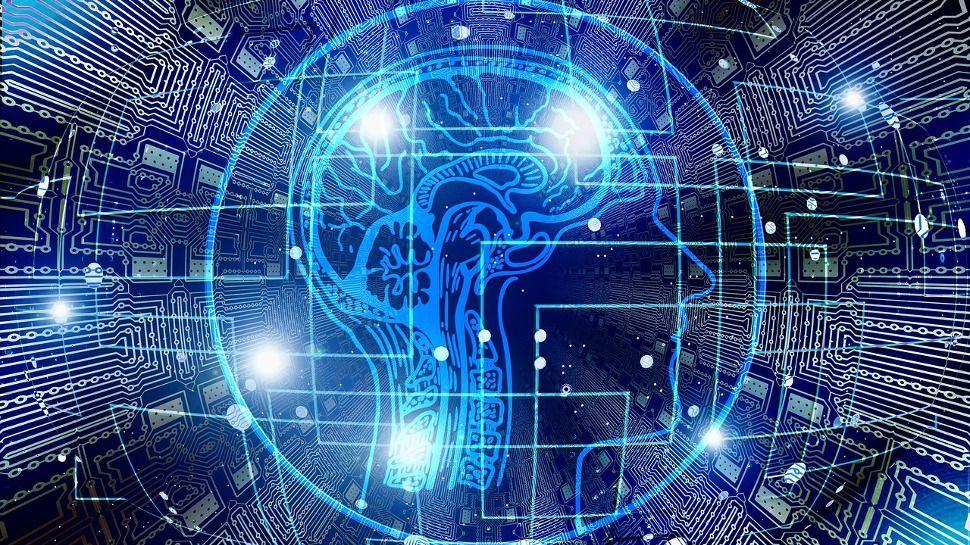The Convergence of AI and Cybersecurity: Navigating the New Frontier
2 Sources
2 Sources
[1]
NVIDIA : Three Ways to Ride the Flywheel of Cybersecurity AI
The business transformations that generative AI brings come with risks that AI itself can help secure in a kind of flywheel of progress. Companies who were quick to embrace the open internet more than 20 years ago were among the first to reap its benefits and become proficient in modern network security. Enterprise AI is following a similar pattern today. Organizations pursuing its advances - especially with powerful generative AI capabilities - are applying those learnings to enhance their security. For those just getting started on this journey, here are ways to address with AI three of the top security threats industry experts have identified for large language models (LLMs). Generative AI services are subject to attacks from malicious prompts designed to disrupt the LLM behind it or gain access to its data. As the report cited above notes, "Direct injections overwrite system prompts, while indirect ones manipulate inputs from external sources." The best antidote for prompt injections are AI guardrails, built into or placed around LLMs. Like the metal safety barriers and concrete curbs on the road, AI guardrails keep LLM applications on track and on topic. The industry has delivered and continues to work on solutions in this area. For example, NVIDIA NeMo Guardrails software lets developers protect the trustworthiness, safety and security of generative AI services. The responses LLMs give to prompts can on occasion reveal sensitive information. With multifactor authentication and other best practices, credentials are becoming increasingly complex, widening the scope of what's considered sensitive data. To guard against disclosures, all sensitive information should be carefully removed or obscured from AI training data. Given the size of datasets used in training, it's hard for humans - but easy for AI models - to ensure a data sanitation process is effective. An AI model trained to detect and obfuscate sensitive information can help safeguard against revealing anything confidential that was inadvertently left in an LLM's training data. Using NVIDIA Morpheus, an AI framework for building cybersecurity applications, enterprises can create AI models and accelerated pipelines that find and protect sensitive information on their networks. Morpheus lets AI do what no human using traditional rule-based analytics can: track and analyze the massive data flows on an entire corporate network. Finally, hackers may try to use LLMs to get access control over an organization's assets. So, businesses need to prevent their generative AI services from exceeding their level of authority. The best defense against this risk is using the best practices of security-by-design. Specifically, grant an LLM the least privileges and continuously evaluate those permissions, so it can only access the tools and data it needs to perform its intended functions. This simple, standard approach is probably all most users need in this case. However, AI can also assist in providing access controls for LLMs. A separate inline model can be trained to detect privilege escalation by evaluating an LLM's outputs. No one technique is a silver bullet; security continues to be about evolving measures and countermeasures. Those who do best on that journey make use of the latest tools and technologies. To secure AI, organizations need to be familiar with it, and the best way to do that is by deploying it in meaningful use cases. NVIDIA and its partners can help with full-stack solutions in AI, cybersecurity and cybersecurity AI. Looking ahead, AI and cybersecurity will be tightly linked in a kind of virtuous cycle, a flywheel of progress where each makes the other better. Ultimately, users will come to trust it as just another form of automation.
[2]
Protecting Systems in the Age of Generative AI - DZone
The rapid adoption of Generative AI (GenAI) and Large Language Models (LLMs) is transforming industries at an unprecedented pace. Nearly 90% of organizations are actively implementing or exploring LLM use cases, eager to harness the power of these revolutionary technologies. However, this enthusiasm is juxtaposed with a concerning lack of security preparedness. A recent GenAI Readiness report by Lakera reveals that only about 5% of organizations are confident in their GenAI security frameworks. This glaring disparity between adoption and security readiness raises a critical question: Is the market prepared for GenAI's potential security risks? With the widespread adoption of GenAI comes a new and potentially devastating threat: prompt hacking. Unlike traditional hacking methods that require extensive coding knowledge, prompt hacking democratizes the ability to exploit AI systems. With a few well-crafted words, even a novice can manipulate AI models, leading to unintended actions and potential data breaches. Lakera's Gandalf, a free LLM hacking simulation game, starkly illustrates this threat. Of the one million Gandalf players and 50 million total prompts and guesses logged to date, an alarming 200,000 have successfully hacked their way through the entire game. This demonstration of how easily GenAI can be manipulated should serve as a wake-up call for organizations rushing to implement these technologies without adequate security measures. Lakera's GenAI Readiness report, combining Gandalf simulation data with survey results from over 1,000 participants, paints a concerning picture of the current state of GenAI security: These findings underscore a critical gap in security preparedness, making many GenAI systems highly susceptible to malicious manipulation and misuse. The security risks associated with GenAI extend beyond just data breaches. Some of the key vulnerabilities identified in the report include: The implications of these vulnerabilities can be far-reaching, from minor operational disruptions to major data breaches and legal consequences. Organizations need to adopt AI-specific threat modeling practices to address the unique security challenges posed by GenAI. This approach involves: To bridge the gap between GenAI adoption and security, organizations should consider the following best practices: As GenAI continues to revolutionize industries, the importance of robust security measures cannot be overstated. Organizations must bridge the gap between adoption and security to fully realize the benefits of these powerful technologies while mitigating the associated risks. By implementing AI-specific threat modeling, adopting best practices for GenAI security, and fostering a culture of continuous learning and adaptation, organizations can build a strong foundation for secure AI innovation. As we navigate this new frontier, the key to success lies in striking the right balance between leveraging GenAI's transformative power and ensuring the safety and integrity of our AI systems. The GenAI revolution is here, and it's time for our security practices to evolve alongside it. Are you ready to secure your AI future?
Share
Share
Copy Link
As AI technologies advance, cybersecurity faces new challenges and opportunities. This story explores the intersection of AI and cybersecurity, highlighting NVIDIA's role and the broader implications for system protection in the age of generative AI.

The AI-Cybersecurity Nexus
In an era where artificial intelligence (AI) is rapidly evolving, the cybersecurity landscape is undergoing a significant transformation. As organizations increasingly adopt AI technologies, they face a dual challenge: harnessing AI's potential to enhance security while simultaneously defending against AI-powered cyber threats. This dynamic interplay between AI and cybersecurity is creating a new frontier that demands innovative approaches and solutions.
NVIDIA's Cybersecurity AI Initiative
At the forefront of this technological convergence is NVIDIA, a company renowned for its graphics processing units (GPUs) and AI technologies. NVIDIA has recently unveiled a comprehensive strategy to leverage AI in bolstering cybersecurity defenses
1
. The company's approach revolves around three key pillars:-
AI-powered security operations: NVIDIA is developing AI models that can analyze vast amounts of data to detect and respond to cyber threats more efficiently than traditional methods.
-
Secure AI development: Recognizing the potential vulnerabilities in AI systems themselves, NVIDIA is focusing on creating secure frameworks for AI model development and deployment.
-
Hardware-based security: NVIDIA is integrating advanced security features directly into its hardware products, providing a foundation for robust cybersecurity measures.
The Rise of Generative AI and Its Security Implications
While AI offers powerful tools for cybersecurity, it also presents new challenges. The advent of generative AI, capable of creating highly convincing fake content, has raised concerns about its potential misuse in cyber attacks
2
. Cybercriminals could exploit these technologies to craft more sophisticated phishing attempts, social engineering attacks, or even generate malicious code.Related Stories
Protecting Systems in the Age of AI
To counter these emerging threats, cybersecurity experts are advocating for a multi-faceted approach:
-
Enhanced authentication: Implementing robust multi-factor authentication systems to verify user identities and prevent unauthorized access.
-
AI-driven threat detection: Utilizing machine learning algorithms to identify anomalies and potential threats in real-time.
-
Continuous monitoring: Employing AI-powered tools for round-the-clock surveillance of network activities and user behaviors.
-
Employee training: Educating staff about the latest AI-driven threats and best practices for maintaining security.
The Future of AI in Cybersecurity
As AI continues to evolve, its role in cybersecurity is expected to grow exponentially. Experts predict that AI will become an indispensable tool for threat prediction, automated response systems, and the development of self-healing networks. However, this technological arms race between defenders and attackers underscores the need for ongoing innovation and vigilance in the cybersecurity field.
The convergence of AI and cybersecurity represents both a challenge and an opportunity. As companies like NVIDIA lead the charge in developing AI-powered security solutions, the broader tech industry must remain committed to creating robust, ethical, and secure AI systems that can protect against the very threats they might inadvertently enable.
References
Summarized by
Navi
[1]
Related Stories
Recent Highlights
1
ByteDance's Seedance 2.0 AI video generator triggers copyright infringement battle with Hollywood
Policy and Regulation

2
Demis Hassabis predicts AGI in 5-8 years, sees new golden era transforming medicine and science
Technology

3
Nvidia and Meta forge massive chip deal as computing power demands reshape AI infrastructure
Technology








